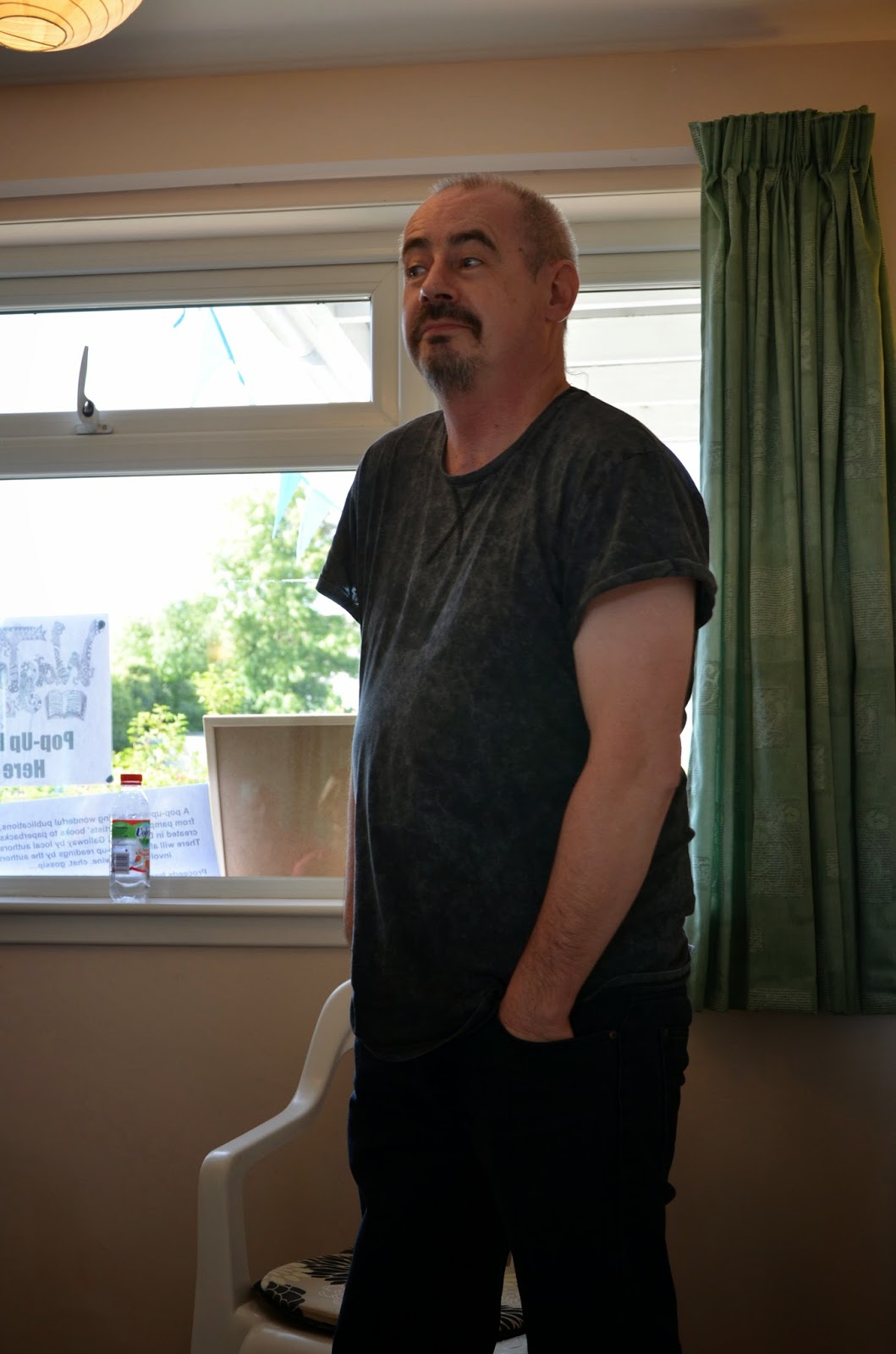I spoke to Lucy Catten, one of the many well-respected, committed and talented book reviewers on Goodreads, recently who told me: "I'm drawn far more to books with a mix of really high and really low ratings than those with hundreds of mediocre ones. Far better that a story sparks strong feelings! I don't give scores in my reviews either - I think they're pretty pointless."
If that is the case, why are we authors fixated on equating the quality of our work with a quantity of stars?
I suppose it's because authors put so much time and effort into producing their very best that they expect to be rewarded with a mark of excellence. It's like being at school: with five gold stars, you're at the top of the class.
With product feedback dominating the decisions in consumer choice, public opinion has usurped the long reign of the professional literary critic. Feedback for a book comes in the form of the reviewer, which is anyone and everyone, and the majority of readers aren't interested in whether that semi-colon is in the wrong place; how many adjectives there are to a sentence; or whether the reflexive pronoun has been lexicologically murdered, they simply mark a book according to the personal experience it has given them.
There is solace for those amongst us who have received some terrible reviews of their precious works. Even the world's greatest writers have had one-star ratings for a range of reasons, from not liking the story personally to not receiving the book on time. After a quick trawl through Amazon, the following is, from least favourite to favourite, my Top 30 list of the best (or worst) one-star reviews:
30 Emily Brontë,Wuthering Heights: “I am repelled by the absurd peregrinations of Brontë's spiteful, petty-spirited, self-absorbed characters”
29 Paulo Coelho,The Alchemist: “Allegorical nonsense”
28 Joseph Heller,Catch-22: “... one of the most tedious, poorly-written books I've ever read.”
27 Yann Martel, Life of Pi: “... dull pseudo-intellectual garbage.”
26 Helen Fielding,Bridget Jones’s Diary: “For anyone concerned about the ‘dumbing-down’ of humanity, here it is in all its glory.”
25 Irvine Welsh,Trainspotting: “I have no idea if this is a good story because I became bored and frustrated trying to translate the cockney crap.”
24 Ralph Steadman, Fear and Loathing in Las Vegas: A Savage Journey to the Heart of the American Dream: “Nothing more than a drug-induced binge.”
23 John Steinbeck, East of Eden: “This book was yellow and old. I did not want to touch it and threw it away.”
22 Hubert Selby Jnr, Requiem for a Dream: “This entire book is written in ghetto/white trash dialect spelled phonetically, with minimal punctuation.”
21 Bret Easton Ellis, American Psycho: “A juvenile attempt at grossing the audience out.”
20 Markus Zusak, The Book Thief: “What's with all the color descriptions? I felt like I was working through a box of crayons.”
19 Joseph Conrad, Heart of Darkness: “Really boring. It's about steamboats and the ivory trade.”
18 Ernest Hemingway, For Whom the Bell Tolls: “You spent more time wondering what the gypsies are saying than the actual story.”
17 George RR Martin, Game of Thrones: “There is no point to this soap opera. Everyone dies.”
16 Gabriel Garcia Marquez, One Hundred Years of Solitude: “... tedious, pointless, and unpleasant and all the characters are creeps.”
15 Scott Donaldson, On the Road: “Three hundred pages of whining, grousing and getting loaded.”
14 Tracy Chevalier, Girl with a Pearl Earring: “Aside from a memorable metaphor on page one, this book is bland as a pauper's meal of yesterday's potatoes.”
13 Ken Kesey, One Flew Over the Cuckoo’s Nest: “... if you were interested in crazy people this is the book for you.”
12 Kurt Vonnegut, Breakfast for Champions: “I'd say it was a book purposely written stupidly to appear clever.”
11 Anne Frank, The Diary of a Young Girl: “She talks of her lady parts and its SERIOUSLY GROSS.”
10 Charles Dickens, A Tale of Two Cities: “Many words used are obsolete.”
9 John Milton, Paradise Lost: “It was so far beyond me that I embarrassed myself.”
8 Orson Scott Card, Enders Game: “... an awful lot of all male shower scenes for an author who doesn't like gay people.”
7 Mary Shelley, Frankenstein: “The creature went from hideous dumb clod to hideous Collin Firth in a matter of months via eavesdropping on some peasants.”
6 Anthony Burgess, A Clockwork Orange: “The made-up slang words ruined the book for me.”
AND FOR MY VERY FAVOURITE TOP FIVE:
5 Aldous Huxley, Brave New World: “a bit too scientific for me.”
4 Herman Melville, Moby Dick: “Too nautical for me.”
3 Anne Rice, Interview with the Vampire: “Being a vampire myself I can assure you that this is nothing at all like it really is. Anne Rice knows nothing of the world of darkness!”
2 Stephen King, The Shining: “got ruined for me when that Friends episode told me how it ended.”
1 George Orwell, 1984: “He doesn't know a thing about the '80s. Not ONCE did he mention Def Leppard or Karma Chameleon.”
You can't win 'em all!
If that is the case, why are we authors fixated on equating the quality of our work with a quantity of stars?
I suppose it's because authors put so much time and effort into producing their very best that they expect to be rewarded with a mark of excellence. It's like being at school: with five gold stars, you're at the top of the class.
With product feedback dominating the decisions in consumer choice, public opinion has usurped the long reign of the professional literary critic. Feedback for a book comes in the form of the reviewer, which is anyone and everyone, and the majority of readers aren't interested in whether that semi-colon is in the wrong place; how many adjectives there are to a sentence; or whether the reflexive pronoun has been lexicologically murdered, they simply mark a book according to the personal experience it has given them.
There is solace for those amongst us who have received some terrible reviews of their precious works. Even the world's greatest writers have had one-star ratings for a range of reasons, from not liking the story personally to not receiving the book on time. After a quick trawl through Amazon, the following is, from least favourite to favourite, my Top 30 list of the best (or worst) one-star reviews:
30 Emily Brontë,Wuthering Heights: “I am repelled by the absurd peregrinations of Brontë's spiteful, petty-spirited, self-absorbed characters”
29 Paulo Coelho,The Alchemist: “Allegorical nonsense”
28 Joseph Heller,Catch-22: “... one of the most tedious, poorly-written books I've ever read.”
27 Yann Martel, Life of Pi: “... dull pseudo-intellectual garbage.”
26 Helen Fielding,Bridget Jones’s Diary: “For anyone concerned about the ‘dumbing-down’ of humanity, here it is in all its glory.”
25 Irvine Welsh,Trainspotting: “I have no idea if this is a good story because I became bored and frustrated trying to translate the cockney crap.”
24 Ralph Steadman, Fear and Loathing in Las Vegas: A Savage Journey to the Heart of the American Dream: “Nothing more than a drug-induced binge.”
23 John Steinbeck, East of Eden: “This book was yellow and old. I did not want to touch it and threw it away.”
22 Hubert Selby Jnr, Requiem for a Dream: “This entire book is written in ghetto/white trash dialect spelled phonetically, with minimal punctuation.”
21 Bret Easton Ellis, American Psycho: “A juvenile attempt at grossing the audience out.”
20 Markus Zusak, The Book Thief: “What's with all the color descriptions? I felt like I was working through a box of crayons.”
19 Joseph Conrad, Heart of Darkness: “Really boring. It's about steamboats and the ivory trade.”
18 Ernest Hemingway, For Whom the Bell Tolls: “You spent more time wondering what the gypsies are saying than the actual story.”
17 George RR Martin, Game of Thrones: “There is no point to this soap opera. Everyone dies.”
16 Gabriel Garcia Marquez, One Hundred Years of Solitude: “... tedious, pointless, and unpleasant and all the characters are creeps.”
15 Scott Donaldson, On the Road: “Three hundred pages of whining, grousing and getting loaded.”
14 Tracy Chevalier, Girl with a Pearl Earring: “Aside from a memorable metaphor on page one, this book is bland as a pauper's meal of yesterday's potatoes.”
13 Ken Kesey, One Flew Over the Cuckoo’s Nest: “... if you were interested in crazy people this is the book for you.”
12 Kurt Vonnegut, Breakfast for Champions: “I'd say it was a book purposely written stupidly to appear clever.”
11 Anne Frank, The Diary of a Young Girl: “She talks of her lady parts and its SERIOUSLY GROSS.”
10 Charles Dickens, A Tale of Two Cities: “Many words used are obsolete.”
9 John Milton, Paradise Lost: “It was so far beyond me that I embarrassed myself.”
8 Orson Scott Card, Enders Game: “... an awful lot of all male shower scenes for an author who doesn't like gay people.”
7 Mary Shelley, Frankenstein: “The creature went from hideous dumb clod to hideous Collin Firth in a matter of months via eavesdropping on some peasants.”
6 Anthony Burgess, A Clockwork Orange: “The made-up slang words ruined the book for me.”
AND FOR MY VERY FAVOURITE TOP FIVE:
5 Aldous Huxley, Brave New World: “a bit too scientific for me.”
4 Herman Melville, Moby Dick: “Too nautical for me.”
3 Anne Rice, Interview with the Vampire: “Being a vampire myself I can assure you that this is nothing at all like it really is. Anne Rice knows nothing of the world of darkness!”
2 Stephen King, The Shining: “got ruined for me when that Friends episode told me how it ended.”
1 George Orwell, 1984: “He doesn't know a thing about the '80s. Not ONCE did he mention Def Leppard or Karma Chameleon.”
You can't win 'em all!


















